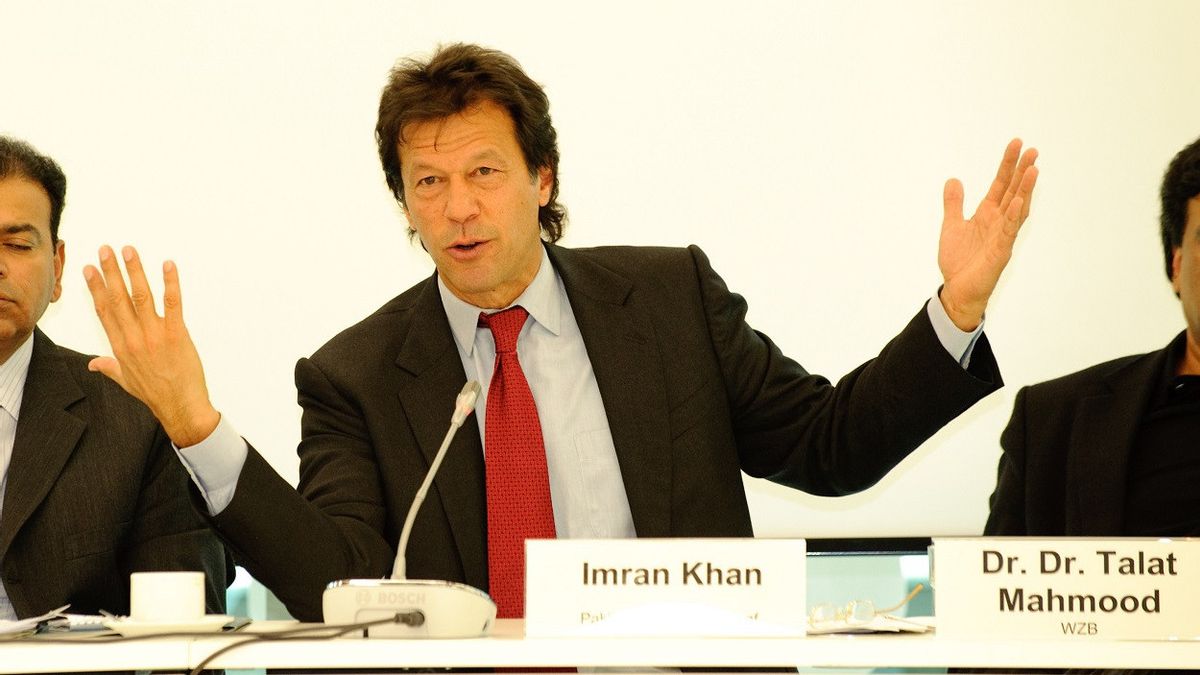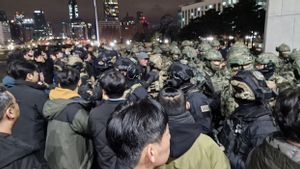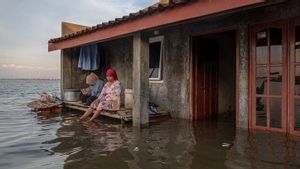JAKARTA - Pakistani Prime Minister Imran Khan warned of the risk of a 'civil war' in Afghanistan if the Taliban were not able to form an inclusive government there.
"If they don't have an inclusive government, and gradually it descends into civil war, which if they don't include all factions sooner or later (it will), it will also have an impact on Pakistan," PM Khan quoted Al Jazeera from BBC 22 as saying. September.
PM Khan said his country was especially concerned about a possible humanitarian and refugee crisis if civil war broke out, as well as the possibility of Afghan land being used by armed groups fighting the Pakistani government.
"It means an unstable and chaotic Afghanistan. (It is) an ideal place for terrorists, because if there is no control or if there is fighting going on. And that is our concern. So terrorism from Afghan soil, and secondly if there is a humanitarian crisis or civil war, refugee issues for us," he explained.
The Taliban have previously rejected Khan's calls for changes to Afghanistan's current interim government, with Mohammad Mobeen, a Taliban leader, saying the group does not give anyone the right to call for an inclusive government.
"We have got freedom. Like Pakistan, we have the right to have our own system," Mobeen told Afghanistan's Ariana TV on Monday, adding the current system was 'inclusive'.
Meanwhile, Taliban Deputy Information Minister Zabihullah Mujahid said the group would address international human rights issues only after official recognition by these countries.
"As long as we are not recognized, and they make criticism (of rights violations), we think it is a one-sided approach. It will be good for them to treat us responsibly and recognize our current government as a responsible government," Mujahid told Tolo. News Afghanistan.
The Pakistani government led by Imran Khan has repeatedly called on the world to engage with the Taliban's interim government to prevent a possible collapse of Afghanistan's structure, due to the absence of central bank funds.
An estimated $10 billion in Afghanistan's central bank funds remain frozen in foreign bank accounts, mainly in the US Federal Reserve, following the takeover of the government by the Taliban a month ago.
Yesterday, Pakistan's Foreign Minister Shah Mahmood Qureshi repeated calls for the funds to be disbursed to enable Afghan government institutions, including schools and hospitals, to function.
"On the one hand, you raise fresh funds to prevent a crisis, and on the other hand, the money that belongs to them, they cannot use," Qureshi told reporters in New York ahead of the UN General Assembly. assembly.
"I don't think freezing assets is helping the situation. I would strongly urge the powers that be that they should review the policy and think about thawing."
Pakistan was the main ally of the Taliban government in Afghanistan between 1996 and 2001. However, Islamabad has not recognized the new government at this time, saying any decision on recognition requires regional consensus.
PM Khan, who recently attended a summit of regional countries as well as Russia and China under the auspices of the Shanghai Cooperation Organization (SCO), said recognition would depend on three factors.
"All of us (at SCO) decided, we will collectively take the decision to recognize Afghanistan, and that decision will depend on whether they will have an inclusive government, guarantee their human rights, the land of Afghanistan should not be used for terrorism, where the neighbors are most worried about that," he said.
He added that Pakistan would encourage the Taliban to form a politically and ethnically inclusive government, "because there will be no sustainable peace or long-term stability unless all factions, all ethnic groups, are represented".
The English, Chinese, Japanese, Arabic, and French versions are automatically generated by the AI. So there may still be inaccuracies in translating, please always see Indonesian as our main language. (system supported by DigitalSiber.id)











